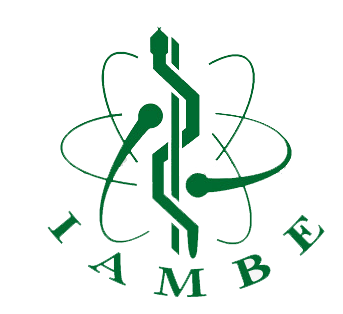LnRiLWZpZWxke21hcmdpbi1ib3R0b206MC43NmVtfS50Yi1maWVsZC0tbGVmdHt0ZXh0LWFsaWduOmxlZnR9LnRiLWZpZWxkLS1jZW50ZXJ7dGV4dC1hbGlnbjpjZW50ZXJ9LnRiLWZpZWxkLS1yaWdodHt0ZXh0LWFsaWduOnJpZ2h0fS50Yi1maWVsZF9fc2t5cGVfcHJldmlld3twYWRkaW5nOjEwcHggMjBweDtib3JkZXItcmFkaXVzOjNweDtjb2xvcjojZmZmO2JhY2tncm91bmQ6IzAwYWZlZTtkaXNwbGF5OmlubGluZS1ibG9ja311bC5nbGlkZV9fc2xpZGVze21hcmdpbjowfQ==
TW9udHNlcnJhdDo2MDAscmVndWxhciw1MDA=
LnRiLWZpZWxkW2RhdGEtdG9vbHNldC1ibG9ja3MtZmllbGQ9ImVjMWNjYjkwNWI1ZTBmMGM1Y2M3YjhlNzhhMjU5OWQxIl0geyBmb250LXNpemU6IDE0cHg7Zm9udC1mYW1pbHk6IE1vbnRzZXJyYXQ7Zm9udC13ZWlnaHQ6IHJlZ3VsYXI7IH0gIC50Yi1maWVsZFtkYXRhLXRvb2xzZXQtYmxvY2tzLWZpZWxkPSI2ZjczYjQzMWRlYjhlN2MzZDhmYTY3OTNiYWEyNzk0ZSJdIHsgZm9udC1zaXplOiAyMHB4O2ZvbnQtZmFtaWx5OiBNb250c2VycmF0O2ZvbnQtd2VpZ2h0OiA1MDA7IH0gIC50Yi1maWVsZFtkYXRhLXRvb2xzZXQtYmxvY2tzLWZpZWxkPSI1NzVjMDY5MGY2ZTFhYjlmYWMzMGM5MWJjMzZlYjZmYSJdIHsgZm9udC1zaXplOiAyMHB4O2ZvbnQtZmFtaWx5OiBNb250c2VycmF0O2ZvbnQtc3R5bGU6IGl0YWxpYztmb250LXdlaWdodDogcmVndWxhcjt0ZXh0LWFsaWduOiBsZWZ0OyB9ICAudGItZmllbGRbZGF0YS10b29sc2V0LWJsb2Nrcy1maWVsZD0iNjY1MjA4ZjdiZTc1MWU3MjkxYzNhNzI1YjY1YjdlYjciXSB7IGZvbnQtc2l6ZTogMzZweDtmb250LWZhbWlseTogTW9udHNlcnJhdDtmb250LXdlaWdodDogNjAwO2xpbmUtaGVpZ2h0OiA1MHB4OyB9ICAudGItaW1hZ2V7cG9zaXRpb246cmVsYXRpdmU7dHJhbnNpdGlvbjp0cmFuc2Zvcm0gMC4yNXMgZWFzZX0ud3AtYmxvY2staW1hZ2UgLnRiLWltYWdlLmFsaWduY2VudGVye21hcmdpbi1sZWZ0OmF1dG87bWFyZ2luLXJpZ2h0OmF1dG99LnRiLWltYWdlIGltZ3ttYXgtd2lkdGg6MTAwJTtoZWlnaHQ6YXV0bzt3aWR0aDphdXRvO3RyYW5zaXRpb246dHJhbnNmb3JtIDAuMjVzIGVhc2V9LnRiLWltYWdlIC50Yi1pbWFnZS1jYXB0aW9uLWZpdC10by1pbWFnZXtkaXNwbGF5OnRhYmxlfS50Yi1pbWFnZSAudGItaW1hZ2UtY2FwdGlvbi1maXQtdG8taW1hZ2UgLnRiLWltYWdlLWNhcHRpb257ZGlzcGxheTp0YWJsZS1jYXB0aW9uO2NhcHRpb24tc2lkZTpib3R0b219IC50Yi1pbWFnZVtkYXRhLXRvb2xzZXQtYmxvY2tzLWltYWdlPSI2NTEyMjIyNGJiNGRkZjhiMTlhMWVhMDFkZGQwNzU2ZCJdIHsgbWF4LXdpZHRoOiAxMDAlOyB9IC50Yi1pbWFnZVtkYXRhLXRvb2xzZXQtYmxvY2tzLWltYWdlPSI2NTEyMjIyNGJiNGRkZjhiMTlhMWVhMDFkZGQwNzU2ZCJdIGltZyB7IHBhZGRpbmctYm90dG9tOiA1MHB4O2JvcmRlcjogMHB4IHNvbGlkIHJnYmEoIDAsIDAsIDAsIDEgKTsgfSBAbWVkaWEgb25seSBzY3JlZW4gYW5kIChtYXgtd2lkdGg6IDc4MXB4KSB7ICAgICAudGItaW1hZ2V7cG9zaXRpb246cmVsYXRpdmU7dHJhbnNpdGlvbjp0cmFuc2Zvcm0gMC4yNXMgZWFzZX0ud3AtYmxvY2staW1hZ2UgLnRiLWltYWdlLmFsaWduY2VudGVye21hcmdpbi1sZWZ0OmF1dG87bWFyZ2luLXJpZ2h0OmF1dG99LnRiLWltYWdlIGltZ3ttYXgtd2lkdGg6MTAwJTtoZWlnaHQ6YXV0bzt3aWR0aDphdXRvO3RyYW5zaXRpb246dHJhbnNmb3JtIDAuMjVzIGVhc2V9LnRiLWltYWdlIC50Yi1pbWFnZS1jYXB0aW9uLWZpdC10by1pbWFnZXtkaXNwbGF5OnRhYmxlfS50Yi1pbWFnZSAudGItaW1hZ2UtY2FwdGlvbi1maXQtdG8taW1hZ2UgLnRiLWltYWdlLWNhcHRpb257ZGlzcGxheTp0YWJsZS1jYXB0aW9uO2NhcHRpb24tc2lkZTpib3R0b219IH0gQG1lZGlhIG9ubHkgc2NyZWVuIGFuZCAobWF4LXdpZHRoOiA1OTlweCkgeyAgICAgLnRiLWltYWdle3Bvc2l0aW9uOnJlbGF0aXZlO3RyYW5zaXRpb246dHJhbnNmb3JtIDAuMjVzIGVhc2V9LndwLWJsb2NrLWltYWdlIC50Yi1pbWFnZS5hbGlnbmNlbnRlcnttYXJnaW4tbGVmdDphdXRvO21hcmdpbi1yaWdodDphdXRvfS50Yi1pbWFnZSBpbWd7bWF4LXdpZHRoOjEwMCU7aGVpZ2h0OmF1dG87d2lkdGg6YXV0bzt0cmFuc2l0aW9uOnRyYW5zZm9ybSAwLjI1cyBlYXNlfS50Yi1pbWFnZSAudGItaW1hZ2UtY2FwdGlvbi1maXQtdG8taW1hZ2V7ZGlzcGxheTp0YWJsZX0udGItaW1hZ2UgLnRiLWltYWdlLWNhcHRpb24tZml0LXRvLWltYWdlIC50Yi1pbWFnZS1jYXB0aW9ue2Rpc3BsYXk6dGFibGUtY2FwdGlvbjtjYXB0aW9uLXNpZGU6Ym90dG9tfSB9IA==
Shigao Chen
Mayo Clinic, USA
2023
TW9udHNlcnJhdDo2MDAscmVndWxhciw1MDA=
Dr. Shigao Chen is a Professor of Radiology at Mayo Clinic and a Fellow of the National Academy of Inventors (NAI), the American Institute for Medical and Biological Engineering (AIMBE), and the American Institute of Ultrasound in Medicine (AIUM). Dr. Chen’s expertise and reputation have led to significant leadership roles, including his service on the AIUM Board of Governors and the NIH External Evaluation Panel. His knowledge and experience have made him a sought-after grant reviewer for the NIH, NASA, and various foreign governments, including the European Research Council, France, the Netherlands, Belgium, and Canada.
Dr. Chen has made numerous and impactful research contributions to the field of medical ultrasound imaging. He holds over 50 patents in the USA and internationally, the majority of which have been licensed for commercialization. One notable technology developed by his team is shear wave elastography, which has been licensed by prominent companies including GE Healthcare and Samsung. This technology is widely used in clinical practice worldwide as a noninvasive alternative to liver biopsy for staging liver fibrosis, a condition affecting hundreds of millions of patients globally.
Dr. Chen’s research and innovation have also resulted in the development of a novel method for the convenient and precise quantification of liver steatosis, a prevalent yet often undetected condition impacting approximately 2 billion individuals. This innovative method has garnered the attention of three companies, which have licensed its application to incorporate into clinical scanners.
Furthermore, Dr. Chen has successfully developed a cutting-edge super-resolution ultrasound imaging technology capable of delineating and measuring flow speed in microvessels as small as 50 microns, while ensuring deep penetration. This revolutionary technology introduces novel individualized imaging biomarkers for diagnosing and evaluating treatment response in a diverse range of critical conditions, including cancers and chronic kidney disease. Its potential impact has led to its licensing by two major healthcare companies, underscoring its significance in advancing medical diagnostics and personalized care.

